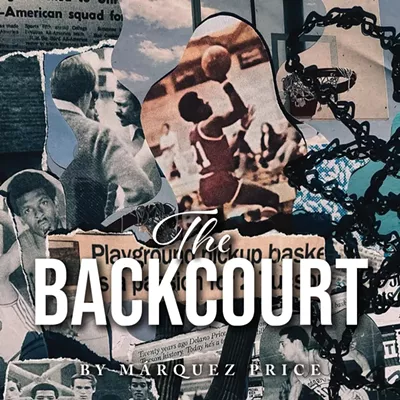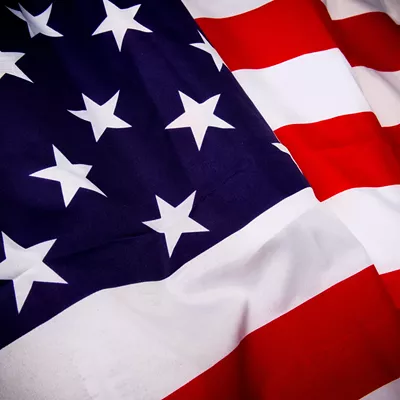Just off the Catalina Highway, to the west of the Molino Basin Trailhead and just south of the Bug Springs Trailhead, lies the Gordon Hirabayashi Campground. Officially, it’s on Prison Camp Road, and therein lies a story.
Gordon Hirabayashi was born in Seattle in 1918, which should have been an important fact in his life, but, sadly, for a long time, it wasn’t. He graduated from high school and then got a degree in sociology from the University of Washington. When World War II broke out, Japanese-Americans were rounded up and herded into internment camps, the third gem in the Triple Crown of Official American Racism that also includes slavery and the attempted genocide of Native Americans.
Hirabayashi originally considered going to one of the camps, but as a pacifist, he decided to become a conscientious objector and refused to cooperate. (What happened next would be hilarious if it weren’t so horrible.) He turned himself in to the FBI, who had no idea what to do with him. He insisted on being arrested so that his case could make its way through the courts.
He was finally convicted of a curfew violation and sentenced to 90 days in jail. But, he wouldn’t be allowed to serve his time in the nearby federal work camp in Tacoma because that facility was in the Exclusion Zone, one of the areas set up by the federal government in which the only place Japanese-Americans were allowed were in the internment camps. So, he could go to one of the camps (which he had already refused to do), but not to prison.
He presented his dilemma to the agents assigned to his case. They also had no idea what to do with him, so he suggested that he do his 90 days in the federal work camp in Tucson. The agents agreed but refused to pay his way, so they just released him after he promised to hitchhike and/or walk from Washington state to Tucson in the late summer. No, really! (As it turns out, Tucson was within the Southern Exclusion Zone, but absolutely nobody involved in the case happened to know that.)
After two weeks of meandering through Idaho, Oregon, Nevada, and Utah, he finally arrived in Tucson. He presented himself to the U.S. Marshal, who told him that there was no paperwork on him, so he should just go back whence he had come. Hirabayashi said that by the time he got back to Washington, the paperwork would probably be found and he would just have to make the trip all over again. He suggested that the Marshal make some phone calls. The Marshal told the convicted criminal to just come back later that day. So Hirabayashi found an air-conditioned movie theater and spent the afternoon watching a film.
When he returned to the office, the Marshal agreed to incarcerate him and had a deputy drive him up to the Catalina Federal Honor Camp, just east of Sabino Canyon. Once there, Hirabayashi joined an odd assortment of inmates. There were different types of conscientious objectors—Mennonites, Jehovah’s Witnesses, and several college students from Southern California. There were also Mexicans who had crossed into America illegally, as well as other criminals—bank robbers, con men, and petty thieves—of all different races.
They would spend their days building what is now the Catalina Highway up to Mount Lemmon. At night, they would retire to strictly segregated barracks. There was one for white Americans, another for Mexican nationals, and a third for Americans classified as “colored,” which included Americans who were either Native, Black, or Hispanic.
He was put in the white barracks, but he wasn’t sure why. Maybe it was supposed to be some kind of privilege, but he would question the warden and the guards as to why he would be convicted of curfew because he was Asian, but then assigned to the white barracks. He led a protest in which many of the white inmates demanded that the white and “colored” barracks be integrated.
He and other inmates then began to question many of the ways in which the camp was run, leading to one of the wardens to lament, “I want this war to end so I can settle down to the good old murderers and kidnappers…They’re not trying to change the system.”
In 1943, the U.S. Supreme Court took up the appeal of Hirabayashi v. United States and ruled unanimously against him. In 1987, nearly a half-century later, his conviction was overturned by the Ninth Circuit Court of Appeals. Late in his one term as President, Jimmy Carter opened the Commission on Wartime Relocation and Internment of Civilians. Three years later, the commission released its report, entitled “Personal Justice Denied.”
The report offered a scathing rebuke of what had been done to American citizens of Japanese origin, concluding that the government’s actions were based on “race prejudice, war hysteria, and a failure of political leadership.”
In 1999, the Coronado National Forest renamed the one-time Catalina Federal Honor Camp for Gordon Hirabayashi.
I know this is Black History Month, but I felt the need to get this story out before the Arizona Legislature makes it illegal to talk about such things, lest it hurt someone’s feelings.








